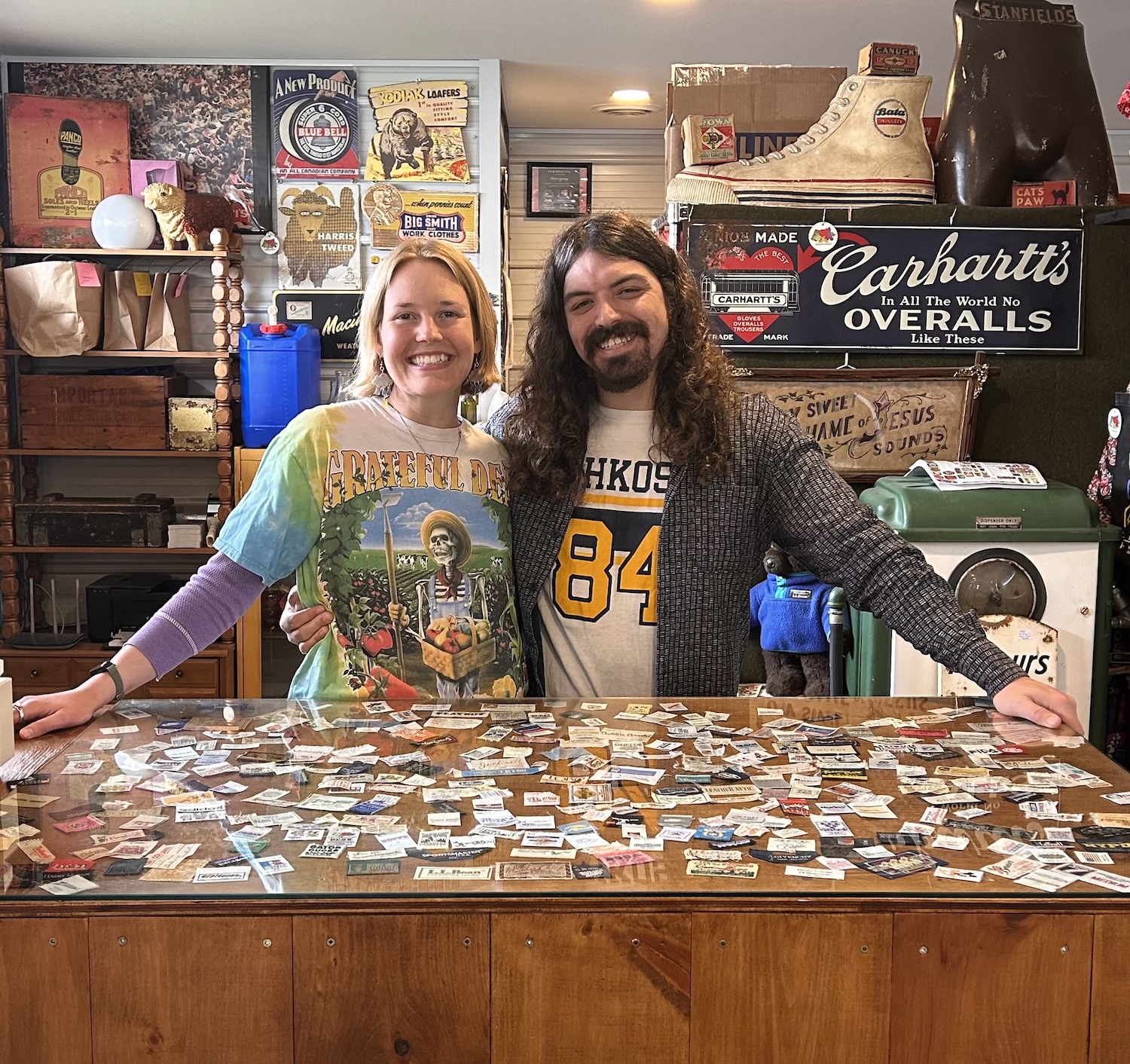Estate sales: Everything you need to know before you go
Have you ever not known what to do at an estate sale, or how to even find them? Read on for the answers to all your estate sale questions
Estate sales, once like a secret society known only to a few, are making their way into the retail zeitgeist given the rise in reselling and online auctions. But have you ever been intimidated by estate sale protocol, or not known where to look for them?
Read on for some straightforward answers to your most pressing estate sale questions.
What is an estate sale?
“Estate” refers to a person’s assets as related to their property — such as their furniture, artwork or buildings. An estate sale, then, is a process by which a large portion of a person’s assets are liquidated, usually due to a change in circumstance, such as moving, downsizing, death or bankruptcy. Estate sales that are a result of moving or downsizing are also called tag sales in certain parts of North America.
In the case of estate sales prompted by death, it may be the deceased person’s wishes to liquidate their assets, or it might be that their family can’t or doesn’t want to absorb all of their loved one’s possessions. The money made from the sale may be split across family members, donated, or used to pay creditors.
Estate sales are often managed by a professional company or liquidator. This is because the process of researching, cataloguing, photographing, listing, advertising, selling and staffing the sale is too much for the average person to take on, particularly if that person is bereaved.
Sometimes estate sales hosted by a private company may be “seller managed,” meaning that the seller takes on a large portion of the activities involved in listing. In these cases, the estate sale company takes a smaller commission as most of their work involves promoting the sale. Seller-managed sales are popular with sellers who already have experience moving product (e.g., a store clearing out its warehouse of old stock may host a seller-managed sale).
Where are estate sales held?
Public estate sales are usually held in the same location where the items are already located, such as in a house — and that’s what makes them different from a yard sale or garage sale.
Items are tagged with prices, and anything that is not available for purchase will either not be on the premises or be marked with “NFS” (not for sale). Unless the estate sale is set up as an estate auction that accepts bids, the assets are usually sold on a first come-first serve basis.
What is an online estate sale?
An online estate sale occurs for the same reasons an on-premise estate sale does: moving, downsizing, death or bankruptcy. Think of the online estate sale experience as a highly curated eBay highlighting one person’s household items.
With online estate sales, you can browse descriptive listings with plenty of photos and make bids on items before the sale closes. Once bidding is over, there is usually a set day, time and location for buyers to pick up their items.
Who can attend an estate sale?
Estate sales don’t have to be intimidating! While pickers, serious dealers and casual sellers all attend, so does the general public. It’s a wonderful way to spend a morning or afternoon. Even if you don’t buy anything, you get a glimpse into the way someone lived, which is always fascinating. And if you’re a real estate buff, it’s a cool way to tour a home.
Not all estate sales are advertised to the general public. Some are private and require dealer connections. So if you’re a seller looking for private sales, always be networking — you never know who may connect you with one!
What can I find at an estate sale?
Basically anything! Jewellery, rugs, artwork, glassware, kitchenware, vintage clothing, books, furniture, electronics, collectibles, sports equipment, miscellany. Sometimes there are also high-ticket items such as cars or watches.
While many items at estate sales do end up selling — between 80-95 per cent of a household’s contents, according to most estate sale companies — unsold items are usually donated to charity or recycled. The seller may be responsible for disposal, but some estate sale companies offer the service, too.
How long do estate sales run for?
Estate sales are meant to unload a lot of pieces all at once. Estate sales “on location” take place over a day or two, often on a weekend. Hours will be posted wherever the sale is advertised.
Online estate sales usually last for a predetermined period, such as five days or a week.
What should I know about attending an estate sale?
1. Be respectful.
If you are attending the estate sale of a person who has died, remember there is usually a grieving family involved (who may even be present on-site during the sale). The deceased person was important to them, and that person’s belongings may carry significance to their family. “People can be vultures, and a little heart goes a long way,” said one seller who recently organized an estate sale for a deceased family member to The Vintage Seeker.
Be respectful not only of the people there, but of the objects themselves. These pieces were important to a person. You may see a great deal for a cool item or something that would make a quick flip, but keep that information to yourself. As the object’s new caretaker, offer it the same care as its previous owner. If the sellers or the family are there, ask questions about the pieces to get to know their histories. What did they mean to the owner?
Be respectful in the line as well. It’s not a race — you may find chatting to others in line to be a fun way to pass the time while you wait to get into the estate sale. They’re people who also want to be there, so try not to view them as competition.
2. Go early — and be prepared to wait.
Lines may start forming several hours before the estate sale begins, or even overnight. You may find a line has already formed when you arrive. If the house or establishment is on the smaller side, there may be only a certain number of people allowed in at a time in order to control crowds.
Estate sales usually operate one of three ways. The first is a first-come, first-serve model. Whoever lines up first goes in first. The second is when sale organizers use sign-in sheets posted at the front door to announce who can enter and when. Attendees walk to the front, write their names down on the sign-in sheet, and wait to be called.
Continued below
Find vintage events in your area
View our calendar
Continued from above
Finally, sometimes a number system is used. Attendees will take a number written on a piece of paper and enter in small groups at a time once their number range is called. Or, the folks who are early in line self-organize and assign their own numbers (“street numbers”), which then can be exchanged for official numbers once the sale opens if the company honours this crowd-managed tactic.
If the sale does not have entry protocol information posted in an accessible place, you can go up to the front of the line to inquire before assuming your place at the back of the line.
3. Be thorough.
Part of the fun of an on-premise estate sale is that it takes place on site. Items are often left in the same places you might normally use them. Open closets and cupboards and check drawers — sometimes treasures hide within! It all depends on who is managing the sale. Some companies clear out everything from all of those hidden places, and others don’t.
4. Prep ahead of time — and while you’re there.
Know your prices. If you’re at an estate sale for serious browsing, be sure you have a good idea of what you need/want before you enter, because you’ll need to make quick decisions once inside. If you leave something behind, it’s highly likely it’ll be gone if you try to backtrack.
Bring cash with you — some estate sales will accept credit cards, but cash is a better bet. Bring measuring tape, particularly if you need to know if something will fit in your own home. Check any posted rules regarding masking, forms of payment, or specific protocols not already covered here. If the company does accept credit cards, transactions may be charged an extra fee.
If you plan to source large items, arrive with a truck or van. You generally need to take items with you when you leave, but check the posted policies of the estate sale you are visiting to see if they will accept pickups at a later time (this is usually only the case for very large pieces).
If you’re planning on becoming a regular estate sale shopper, another tip is to keep track of things while you are there, particularly if the sale is being hosted by a professionally managed company. Then you’ll know how they operate the next time you visit one of their sales. Did they lower their pricing in the afternoon or on day two? What was the set up with the lines? Make notes for next time and you’ll feel more sure of yourself each time you attend a sale.
How do I choose and pay for items at an estate sale?
Bring a bag to carry small items — you pick these up as you move through the space and pay at the end. But keep the bag size manageable, or it may be hard to manoeuvre through the space. Sometimes there are bags available onsite.
Whether you are there for fun or to source, only pick up items you plan to buy so you leave inventory on the floor for others.
If there’s a piece of furniture or other object that is too big to move around, flag down someone who is working the sale to label the item as sold for you.
Note that not all items may be for sale. Make sure the item has a price sticker on it, and watch for those NFS tags (not for sale).
There’s bidding at the estate sale. What does that mean?
Sometimes, bids will be accepted at the end of a sale to move items that haven’t yet sold. This is where you can get an item for a lower price than what it’s listed for. But anyone else can come in and buy the item full price at any time, meaning it’s not guaranteed to move on to the bidding process.
What are the prices like at estate sales?
That varies depending on the objects being sold and the geographic location. You may find decor and kitchenware to be very reasonably priced, whereas the price will increase depending on the size and rarity of the object.
Prices will be higher than a thrift store, but quite possibly lower than what you may find from a reseller who charges for the overhead of finding and selling the item.
Estate sales sometimes include art and collectibles. If you’re visiting an estate sale in an affluent neighbourhood, the items up for sale may be considered more valuable and thus more expensive. Estate sales with very high-ticket items may be turned over to an auction house, where items will go for top-dollar.
Many estate sales are managed by private companies who help the sellers price items according to their value. They’re priced low enough to sell, but high enough to retain value. Those companies also employ appraisers who can assess the value of an item, and you can trust that the listed price is correct.
You’re welcome to negotiate, but early in a sale is not the time to do it. An estate sale company’s job is to get the best possible price for their client. If you do decide to try to negotiate, accept a no graciously if the seller refuses to move on the price.
Sometimes, prices for items are further reduced as the sale proceeds. That’s when negotiating might work better.
What else do I need to know about estate sales?
If the seller has contracted a company to manage the estate sale — which is usually the case if there are a lot of items or if the items have some value — the items may be somewhat staged to ensure they are sold. The sale will also be well marketed to draw more people.
Where do I find an estate sale?
To keep on top of when estate sales are happening, sign up for e-newsletters for estate sale companies in your local area. Google “estate sale companies” and your province to get more targeted results (i.e., in Ontario you might try Estate Sales Ontario, The Great Estate Sale or Auctions Ontario, to name a few).
In Canada, here are a few online options to try (not an exhaustive list): MaxSold, Maxx Liquidation Services, Rapid-Sell, Sell This For Me or Sell My Stuff Canada.
There’s also a good U.S. directory at EstateSales.net, so if you live near the border, you can find U.S. estate sales within driving distance.
Have a tip not listed here? What’s your favourite part of estate sale shopping? Let us know in the comments!
Thank you for valuing our work!
Support our work to see this page.
You’ve got a good eye, but this gem is only available for members. Register for a plan or upgrade your current one to peek behind this vintage curtain, or log in below.
















